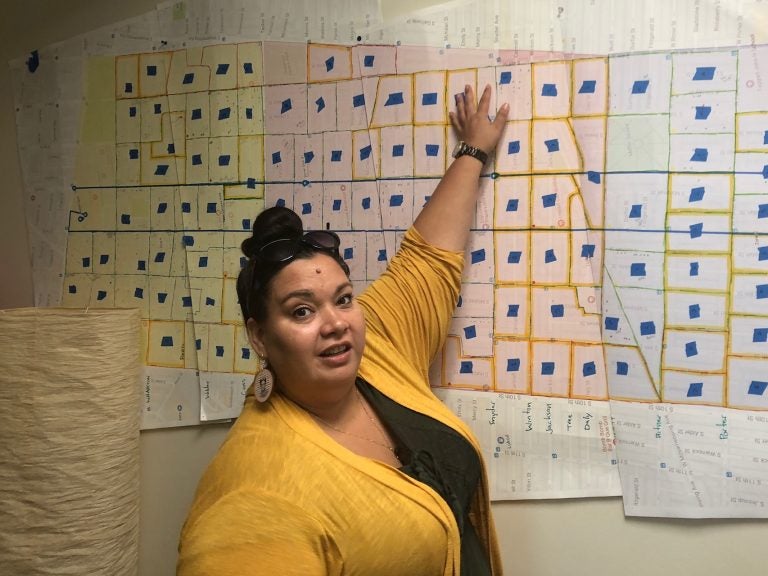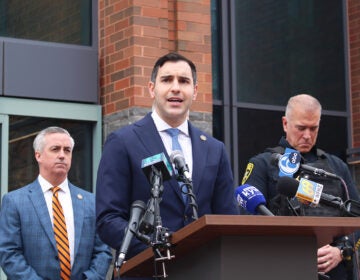As Philly ends ICE deal, immigrant advocacy group works to monitor law enforcement
Pressure from protesters calling for an end of ICE and meetings with activists helped convince Mayor Jim Kenney to end the arrangement.

Juntos executive director Erika Almiron shows a map of the area where residents have signed up for the advocacy group's Community Resistance Zone program. (Darryl C. Murphy for WHYY)
It’s been more than a month since Mayor Jim Kenney announced that the city would not renew its contract with U.S. Immigration Customs and Enforcement.
The preliminary arraignment reporting system, or PARS, agreement granted ICE access to a real-time database that local activists and community members said was being used to target unauthorized immigrants.
After pressure from Abolish ICE protesters and meetings with activists, Kenney decided to end the arrangement.
Erika Almiron, the executive director of immigrant advocacy group Juntos, credited the change in policy to people who shared their negative experiences with city officials.
“I think that it was a lot of the leadership from this community actually being brave about telling what’s happening and what they want that led to that moment,” she said.
Juntos has been one of the leading organizations pushing for immigration changes, and ending the PARS agreement has been a fixture on its agenda.
With that resolution in the rear-view, the nonprofit plans to continue developing its initiative for monitoring law enforcement.
Starting in South Philadelphia, Juntos’ Community Resistance Zones program is a door-to-door effort to get city residents involved in alerting others when authorities target the unauthorized and, at times, interacting with law enforcement.
Well over 500 people have signed up, and 1,300 have had “know-your-rights” training since the program’s launch in November. The effort also will feature a hotline and app to send out real-time alerts.
The initiative is part of Juntos work in overarching criminal justice reform, Almiron said.
“We have an unaccountable police force,” she said. “We have an unaccountable ICE machine. We have a system that cages people that doesn’t work, both for deportation purposes and mass incarceration,” she said. “What’s the world that we want to see that is different?”
Related interview:
WHYY is your source for fact-based, in-depth journalism and information. As a nonprofit organization, we rely on financial support from readers like you. Please give today.





